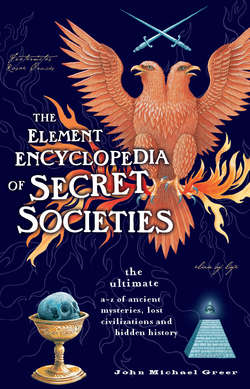Читать книгу The Element Encyclopedia of Secret Societies: The Ultimate A–Z of Ancient Mysteries, Lost Civilizations and Forgotten Wisdom - John Greer Michael - Страница 70
BENANDANTI
ОглавлениеOne of the strangest cases in the files of the Italian Inquisition is the case of the benandanti (Italian for “good walkers”), a secret society of peasant magicians in the region of Friuli, in the far northeast of Italy. The benandanti first came to the attention of the Catholic authorities in 1575, when a member of the society was brought before the Inquisition on an unrelated charge. The inquisitors were completely baffled by what they learned, as it did not match official portrayals of Satanism or pagan religion. Investigations continued in a desultory way for the next three-quarters of a century, with over a hundred benandanti finding themselves hauled before the Inquisition and grilled about their beliefs.
According to their testimony, children born with a caul (a portion of the amniotic sac) on their head were destined to become benandanti. On the ember days – the days to either side of the solstices and equinoxes – they left their physical bodies behind and traveled in animal form to the Vale of Josaphat at the center of the world. There, using fennel stalks as their weapons, they battled the malandanti or “evil walkers,” sorcerers armed with sorghum stalks. If the benandanti won, the harvest would be good; if the malandanti won, the crops would fail. The special powers of the benandanti gave them the ability to heal illnesses and lift curses, but their central duty was the nocturnal battle against the malandanti.
The Inquisition office in Friuli, as elsewhere in Italy, rejected the use of torture and gave accused persons certain legal rights rare north of the Alps. As a result, very few of the benandanti faced serious punishment; most were let off with penances and a stern warning to abandon their supposedly superstitious beliefs. The last trial involving benandanti was in 1644; after that time, faced with more serious threats to Catholic orthodoxy, the Friulian Inquisition abandoned the issue and no further investigations were ordered.
As historian of medieval culture Carlo Ginzburg has pointed out, the records of the benandanti are of high importance because they document one form of a tradition – found all over medieval Europe in various guises – of nocturnal journeys in animal form, often in the company of a goddess. This tradition surfaced by the ninth century, when it was condemned by the canon Episcopi, part of Catholic canon law, and can be found mentioned in Inquisition records and folklore from across Europe. See canon Episcopi.
Further reading: Ginzburg 1985, Ginzburg 1991.
